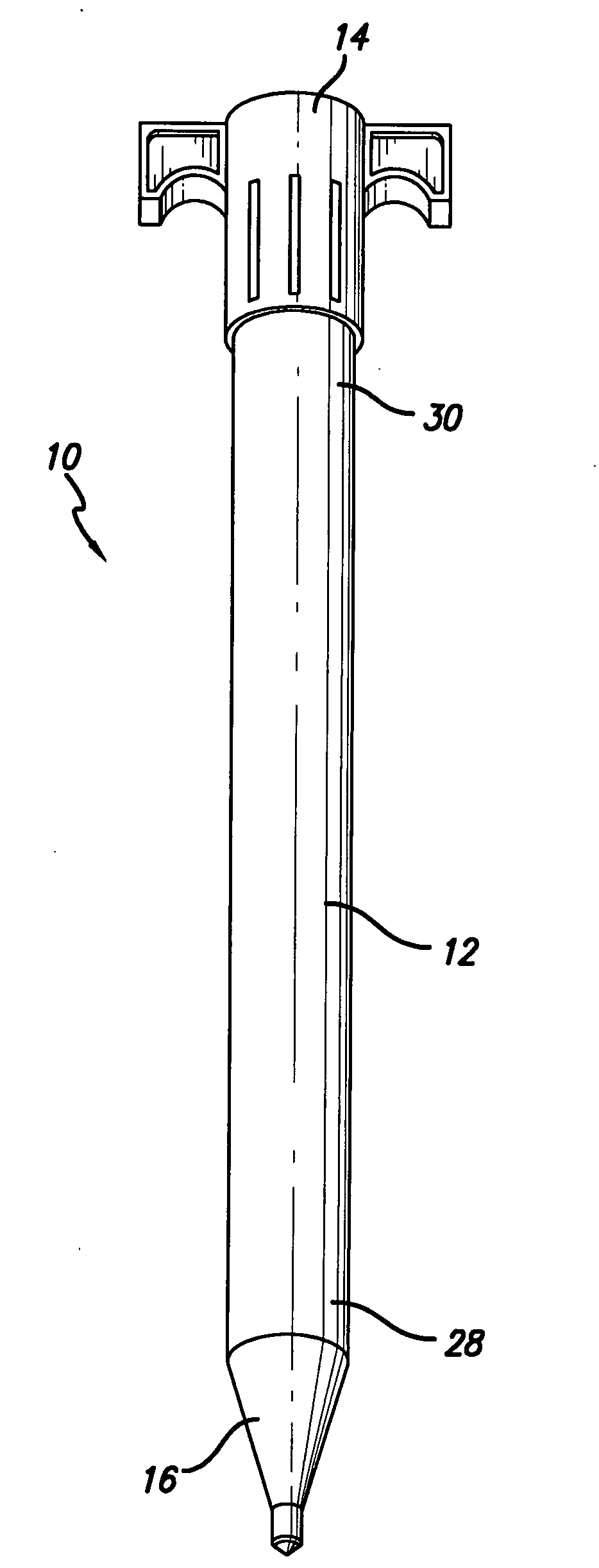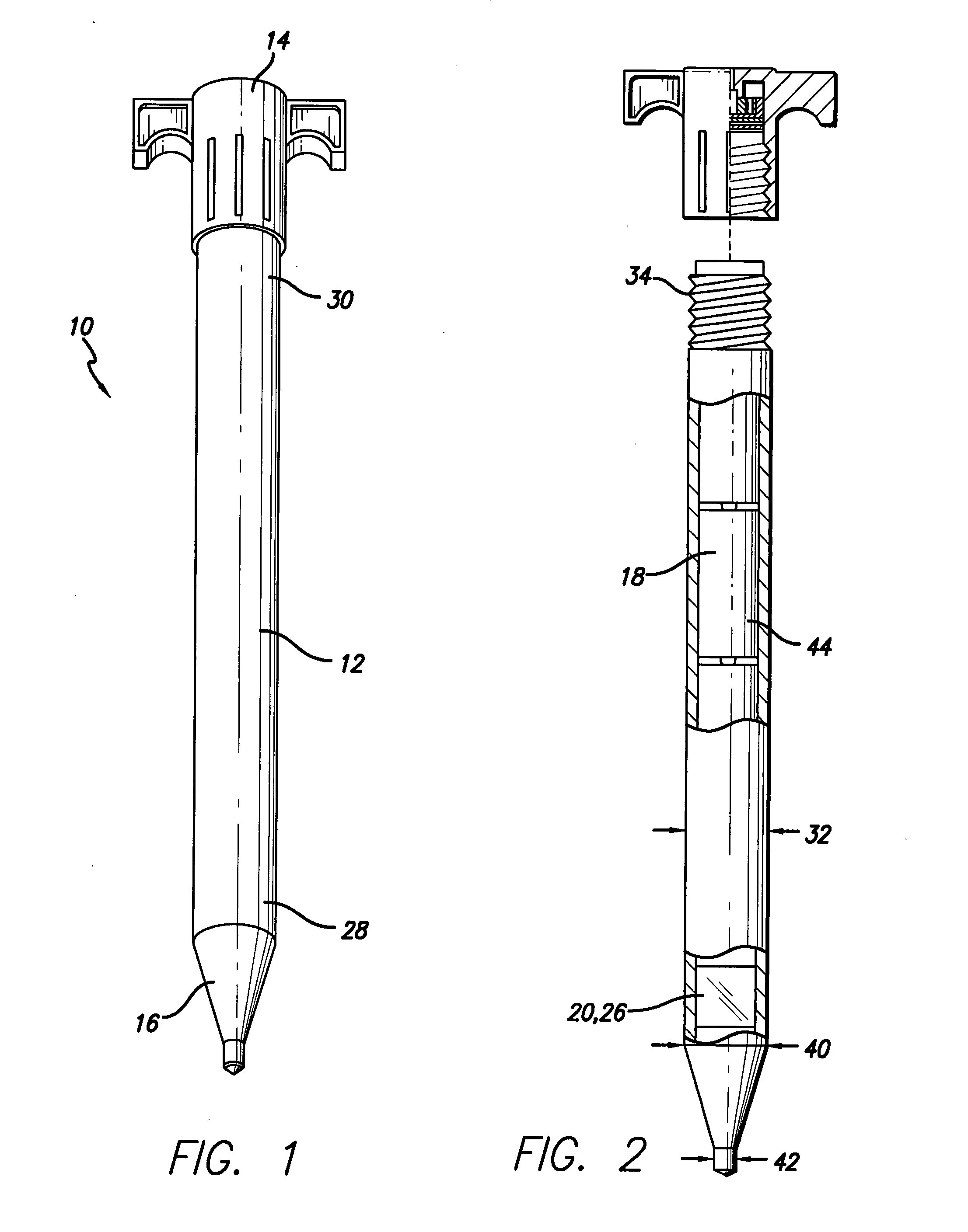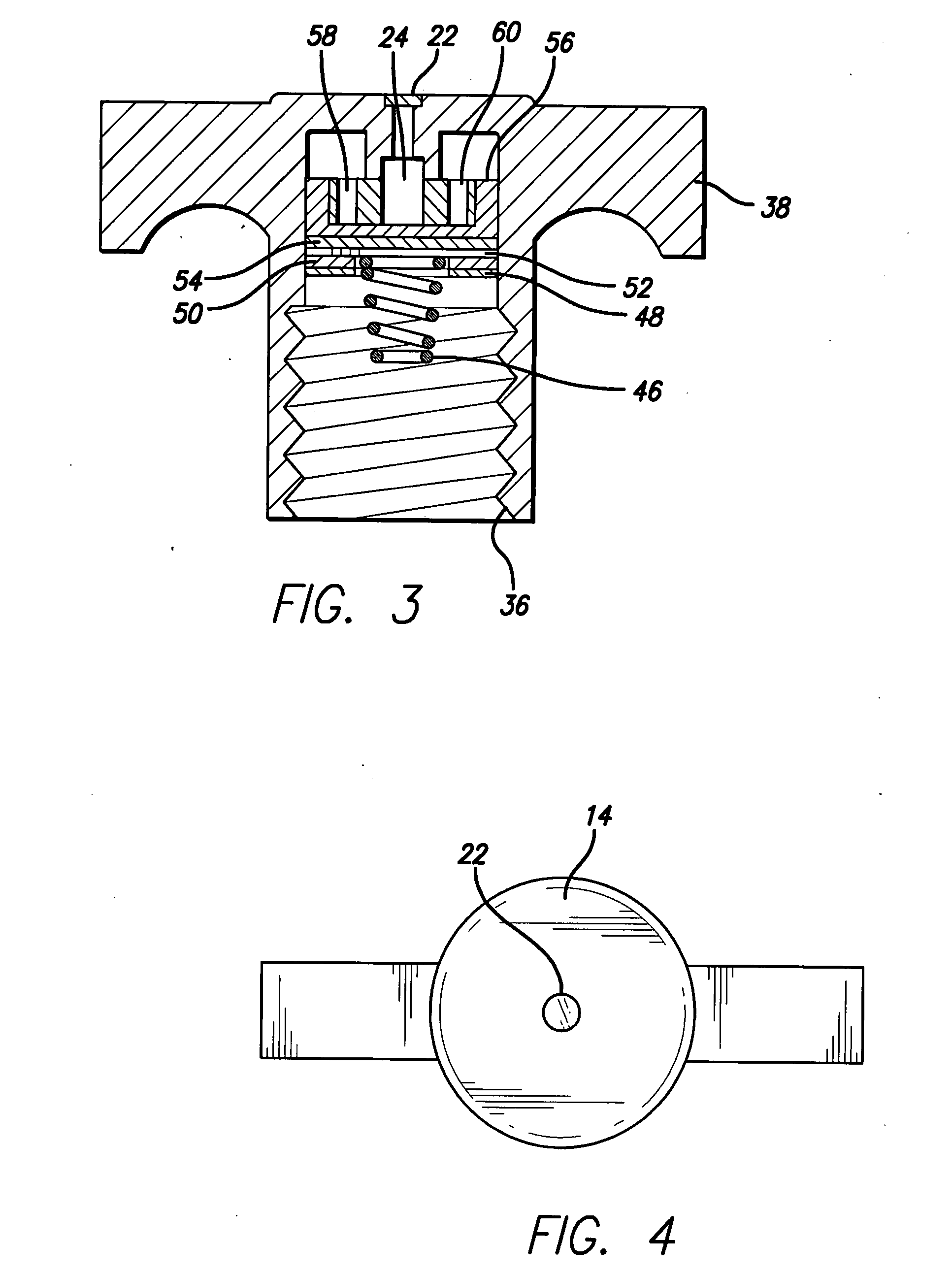Electronic rodent repeller
a technology of electric rodents and repellers, applied in the field of electric rodent repellers, can solve the problems of inhumane trapping, gruesome trapping, and inability to trap animals, and achieve the effects of reducing the effect of sound-dampening factors, and minimal hindran
- Summary
- Abstract
- Description
- Claims
- Application Information
AI Technical Summary
Benefits of technology
Problems solved by technology
Method used
Image
Examples
Embodiment Construction
[0023]The detailed description set forth below in connection with the appended drawings is intended as a description of presently-preferred embodiments of the invention and is not intended to represent the only forms in which the present invention may be constructed or utilized. The description sets forth the functions and the sequence of steps for constructing and operating the invention in connection with the illustrated embodiments. However, it is to be understood that the same or equivalent functions and sequences may be accomplished by different embodiments that are also intended to be encompassed within the spirit and scope of the invention.
[0024]Referring to the Figures, the present invention is directed to an electronic rodent repeller 10 for insertion into the ground. As shown if FIG. 1, the rodent repeller 10 has an elongated body 12, an end cap 14, an apex 16, a power supply 18, an audible signal generator 20, an LED 22, and an electronic controller.
[0025]The elongated bo...
PUM
 Login to View More
Login to View More Abstract
Description
Claims
Application Information
 Login to View More
Login to View More - R&D
- Intellectual Property
- Life Sciences
- Materials
- Tech Scout
- Unparalleled Data Quality
- Higher Quality Content
- 60% Fewer Hallucinations
Browse by: Latest US Patents, China's latest patents, Technical Efficacy Thesaurus, Application Domain, Technology Topic, Popular Technical Reports.
© 2025 PatSnap. All rights reserved.Legal|Privacy policy|Modern Slavery Act Transparency Statement|Sitemap|About US| Contact US: help@patsnap.com



